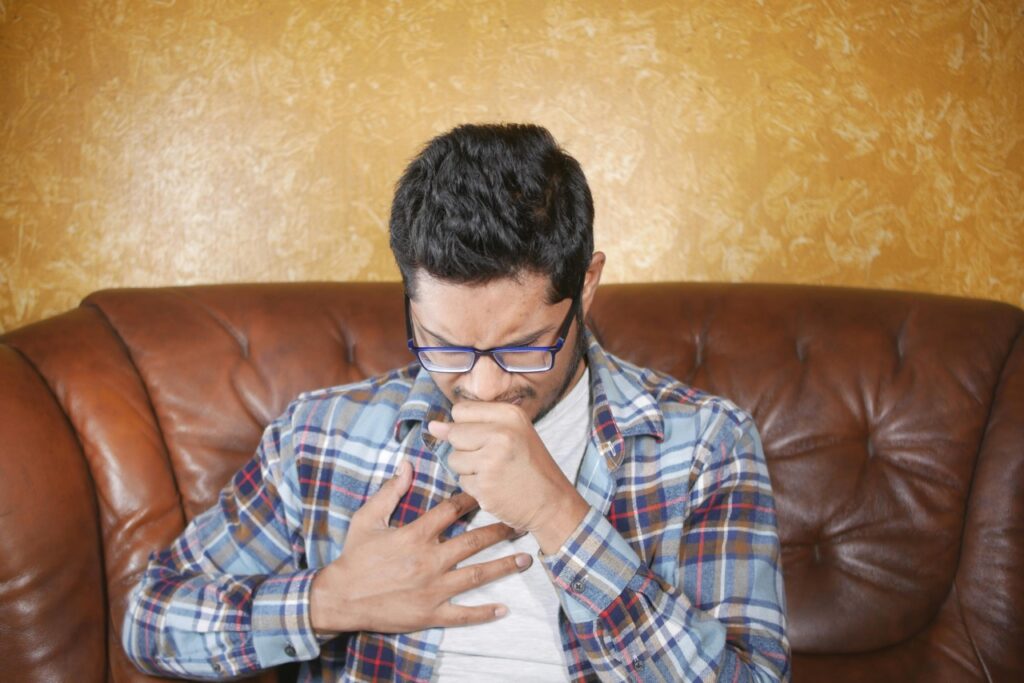Alternative Treatments
Whooping Cough: Learn How to Treat It Today
We will explore effective methods and treatments to manage and treat whooping cough. From antibiotics to home remedies, we will provide a comprehensive overview of the available options, so you can make informed decisions about your health or the health of your loved ones.
Whooping cough, also known as pertussis, is a highly contagious respiratory infection that can be incredibly distressing, especially for young children.
The condition is characterized by severe coughing spells, making it difficult to breathe properly and causing a distinct “whoop” sound when trying to inhale. If left untreated, whooping cough can lead to serious complications and even death, particularly in infants.
Understanding the symptoms, knowing when to seek medical help, and implementing appropriate treatments can significantly reduce the duration and severity of the illness. With the proper care and attention, it is possible to alleviate the discomfort caused by whooping cough and promote a faster recovery.
Join us as we delve into the world of whooping cough and empower ourselves with the knowledge needed to treat this challenging condition.
What is Whooping Cough?
Bordetella pertussis causes whooping cough, which is a highly contagious bacterial infection. It affects the respiratory system, specifically the airways and lungs.
When an infected individual coughs or sneezes, droplets in the air disseminate the infection, making the bacterium easily passed from one person to another.
The early symptoms of whooping cough are similar to those of a regular cold, including a runny nose, sneezing, and a slight cough. However, as the sickness continues, the cough grows more intense and distinct. Coughing fits might be strong enough to cause vomiting and tiredness.

Causes and Symptoms
Whooping cough is caused by the highly contagious bacteria Bordetella pertussis. When an infected individual coughs or sneezes, little droplets of bacteria are released into the air. If an uninfected individual breaths these droplets, they may get infected.
Whooping cough symptoms usually occur 7 to 10 days after being exposed to the germs. In the early stages, the symptoms resemble those of a normal cold, such as a runny nose, sneezing, and a moderate cough. However, as the infection continues, the cough is more intense and distinct.
The typical coughing fits are strong and can persist for several minutes, frequently ending with a “whooping” sound as the victim attempts to breath. Coughing bouts can be taxing, especially at night. Other symptoms may include a fever, tiredness, and difficulty breathing.
Who is at Risk?
While anyone can catch whooping cough, some groups are more likely to experience serious problems. Infants under the age of one are especially vulnerable since their immune systems are not fully formed. Older children, teenagers, and adults who have not been vaccinated or have not had a recent booster injection are also at risk.
Furthermore, pregnant women should take particular measures since whooping cough can spread to neonates who are too young to be vaccinated. It is suggested that pregnant women get the Tdap vaccine during each pregnancy in order to pass on some immunity to their babies.

Diagnosing Whooping Cough
Diagnosing whooping cough can be difficult because the symptoms vary and may resemble those of other respiratory disorders. When making a diagnosis, a healthcare provider will often consider the patient’s symptoms, medical history, and exposure to infected individuals.
In some circumstances, a laboratory test may be used to confirm the presence of Bordetella pertussis bacteria. This may include obtaining a swab from the back of the throat or performing a blood test to detect antibodies to the bacterium.
Traditional Treatments for Whooping Cough
Early detection and early treatment are critical to be able to treat a whooping cough. Antibiotics including azithromycin, erythromycin, and clarithromycin are frequently administered to assist alleviate the severity and length of the sickness. These treatments may also help to prevent the infection from spreading to others.
Antibiotics are most effective when provided early in the infection, before the cough worsens. They operate by destroying the bacteria that cause the sickness, which can help minimize coughing bouts.

Natural Remedies for Whooping Cough
In addition to established therapies, there are a few natural cures that can help treat whooping cough. These cures can be combined with prescription medications to provide relief and aid in the healing process.
- Honey: Honey has natural antibacterial properties and can help soothe the throat. It can be consumed on its own or added to warm water or herbal tea.
- Steam inhalation: Inhaling steam from a bowl of hot water or taking a hot shower can help loosen mucus and relieve congestion, making it easier to breathe.
- Saline nasal drops: Saline nasal drops can help clear nasal congestion and reduce post-nasal drip, which can contribute to coughing.
- Probiotics: Taking probiotic supplements or consuming probiotic-rich foods, such as yogurt and kefir, can help support the immune system and promote gut health.
Preventing the Spread of Whooping Cough
Preventing the spread of whooping cough is crucial in containing the infection and protecting vulnerable individuals. Here are some measures that can help reduce the risk of transmission:
- Vaccination: Ensuring that you and your family members are up to date with vaccinations is the most effective way to prevent whooping cough. The DTaP vaccine is typically administered during childhood, with booster shots recommended for adolescents and adults.
- Good hygiene practices: Regular handwashing, covering the mouth and nose when coughing or sneezing, and disposing of tissues properly can help prevent the spread of the bacteria.
- Isolation: If you or a family member is diagnosed with whooping cough, it is important to stay at home and avoid close contact with others until you are no longer contagious.

Whooping Cough Vaccine
Vaccination is the most effective method of preventing whooping cough. The DTaP vaccine, which stands for diphtheria, tetanus, and pertussis, is commonly given to children as part of their immunization program. The vaccine prevents all three diseases, including whooping cough.
Booster injections are recommended for teenagers and adults to maintain immunity. The Tdap vaccination, which is identical to the DTaP vaccine but contains a lower dose of diphtheria, is widely administered to people aged 11 and up.
Complications of Whooping Cough
While whooping cough is usually a self-limiting infection, it can cause serious consequences, particularly in newborns and young children. These problems may include pneumonia, ear infections, convulsions, brain damage, and even death.
If you or your kid is experiencing severe coughing episodes, difficulty breathing, or any other troubling symptoms, get medical attention immediately. Early identification and treatment can assist to avoid problems and promote a faster recovery.
Conclusion
Pertussis, sometimes known as whooping cough, is a highly contagious respiratory infection that can be upsetting, especially in young children. Understanding the symptoms, understanding when to seek medical attention, and adopting effective treatments are critical to help manage and treat whooping cough.
There are several choices that can help treat whooping cough, ranging from standard medications to herbal therapies. Vaccination is also important for avoiding infection transmission and safeguarding vulnerable people.
Staying informed, taking preventive actions, and seeking timely medical care can help us defeat whooping cough and recover faster for ourselves and our loved ones.
Trusted Health, Wellness, and Medical advice for your well-being



